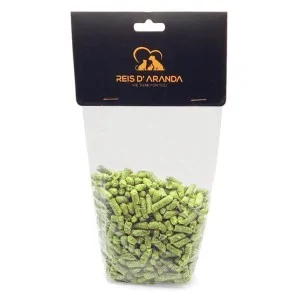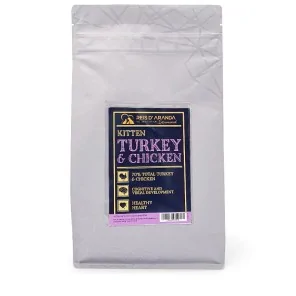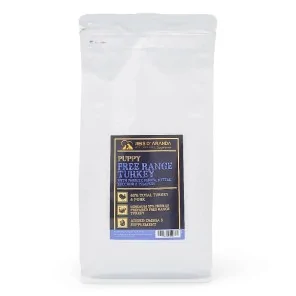The Tornjak originated from genetically homogeneous, almost extinct, indigenous shepherd dogs. These dogs have...
THE IMPORTANCE OF COLOSTRUM
INTRODUCTION
If you've heard the terms ‘first milk’, ‘liquid gold’ or ‘early milk’, you probably didn't know what they refer to. They all refer to colostrum, a type of nutrient-rich breast milk produced by mammals before normal milk.
WHAT IS COLOSTRUM?
Colostrum, the first milk produced by the mother when breastfeeding begins, is the ideal food for a newborn. It is highly concentrated, protein-packed and nutrient-dense, so just a small amount will satisfy a puppy's tiny stomach. It's also low in fat, easy to digest and has ingredients that kick-start their development in the best possible way. And, perhaps most importantly, it plays a vital role in building their immune system.
Colostrum looks thicker and yellower than mature milk. Its composition is also different, as it is adapted to the specific needs of the puppy.
Compared to mature milk, colostrum has lower amounts of lactose, fat and vitamins, but higher amounts of protein, fat-soluble vitamins (E, A, K), carotenes and minerals such as sodium, zinc, iron, sulphur, manganese, selenium and potassium. It provides an average of 67 Kcal/100 ml (depending on the animal).
WHAT ARE THE BENEFITS OF COLOSTRUM?
FIGHTS INFECTIONS: Up to two-thirds of the cells in colostrum are white blood cells, which protect against infections and help the puppy begin to fight them on its own. ‘White blood cells are important in terms of immune responses. They provide protection and fight pathogens,’ explains Professor Peter Hartmann, a leading expert in lactation science at the University of Western Australia.
After leaving the protection provided by the mother's body, the puppy needs to prepare itself for the new challenges of the world around it. The white blood cells in colostrum produce antibodies that can neutralise bacteria or viruses.
HELPS THE IMMUNE SYSTEM AND INTESTINAL FUNCTION: Colostrum is especially rich in a key antibody called sIgA. This antibody protects the puppy against disease, not by passing directly into the bloodstream, but by generating a lining in the gastrointestinal tract. ‘Molecules that have provided an immune defence against infection in the mother reach the breast via the blood, where they bind to form sIgA, and are secreted into the colostrum,’ explains Professor Hartmann. ‘This sIgA is concentrated in the mucosa lining the intestine and respiratory system of the puppy, protecting it from the diseases the mother has already experienced.
Colostrum is also rich in other immune components and growth factors that stimulate the growth of the puppy's protective mucous membranes in the intestines. And while this is happening, the prebiotics in colostrum nourish and build the ‘good’ bacteria in the gut.
AVOID ICTERICIA: In addition to offering protection against intestinal problems, colostrum acts as a laxative that allows the newborn to defecate frequently. This helps him empty his bowels of whatever he has ingested while in the womb in the form of meconium, which is a dark, sticky stool.
Frequent defecation also reduces the risk of jaundice. The puppy is born with high levels of red blood cells, which carry oxygen to all parts of the body. When these cells break down, the liver helps process them, creating a by-product called bilirubin. If the puppy's liver is not developed enough to process bilirubin, it will build up in his system, causing jaundice. The laxative properties of colostrum will help the puppy to expel this bilirubin with the faeces.
VITAMINS AND MINERALS: Carotenoids and vitamin A in colostrum are responsible for its distinctive yellowish colour. Vitamin A is important for the puppy's vision (vitamin A deficiency is the leading cause of blindness in the world) and for maintaining the puppy's skin and immune system. Puppies are often born with low vitamin A stores,8 so colostrum helps to make up for this deficit.
‘The first three days are a critical period for establishing lactation’.
Colostrum is also rich in minerals, such as magnesium, which helps the puppy's heart and bone development; and copper and zinc, which help develop its immune system. Zinc also contributes to brain development. There is almost four times as much zinc in colostrum as in mature milk to help the puppy's brain develop.
HELPS GROWTH AND DEVELOPMENT: Colostrum contains a number of other components that help puppies grow and develop. Scientists are still investigating the function of some of them.
‘Colostrum maintains the same composition up to about 30 hours after birth,’ says Professor Hartmann. ‘It has a relatively high protein content because all the antibodies it contains are proteins. It has a relatively low level of lactose [milk sugar], and the fat has a different composition to that of mature milk.’
And because colostrum is similar in composition to amniotic fluid (which the puppy has been swallowing and excreting in utero), it is ideal for easing its transition to the outside world.
WHAT ARE THE CONSEQUENCES OF A PUPPY NOT DRINKING COLOSTRUM?
Puppies that do not take colostrum due to loss of the mother or abandonment are much more prone to infections, take much longer to gain weight and have problems in thermoregulation, on the other hand, the chances of death are higher (especially in small pets). If we do not have access to the mother or it is not possible to obtain or make use of a wet nurse (in hamsters it is impossible), we have to look for milk replacers that are suitable for the type of puppy in question and have colostrum in their composition.
Many animals are very difficult to bottle-feed (rabbits, rats and hamsters) and infant mortality rates are high.
CONCLUSION
Colostrum is a secretion whose composition is very specific to meet the very particular needs of puppies, including immunological, energy and certain factors for organ growth and development. The amount of colostrum ingested may be a limiting factor for the survival of some of the pups in the litter, and the influence of maternal nutrition on the quantity and quality of colostrum remains to be determined. From a practical standpoint, the development of colostrum substitutes or supplements that provide immune support against canine pathogens, in addition to the necessary energy, represents a major advance in the control of neonatal puppy mortality.
Leave a comment
Log in to post comments
















